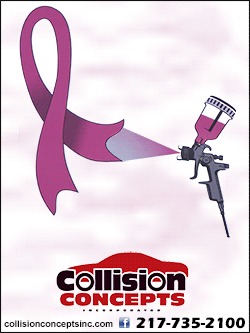Almost like being there: Making the most
of virtual conferences
 Send a link to a friend
Send a link to a friend
 [October 13, 2020] By
Chris Taylor [October 13, 2020] By
Chris Taylor
NEW YORK (Reuters) - When Diane Leonard checked in to a conference the
other day, the routine was familiar: Watching keynote speakers,
interacting with other attendees, bumping into friends.
One key difference: The grantwriter was at home in Clayton, New York,
with her favorite black coffee, treadmill desk and mini goldendoodle,
Ollie.
Like many gatherings this year, the tech conference for nonprofit
professionals by Blackbaud, a cloud computing provider, was fully
virtual.
"I'd say I have been to more than 40 of these over the last six months,"
Leonard said. "It's become a way of life."
In Meeting Professionals International's summer survey, 86% of
respondents foresaw declining attendance for live events over the coming
year, while 87% projected an increase for virtual ones.

"In six months of running virtual events, I've found that they are about
20% different from real-life conferences – but it's a critical 20%,"
said Sree Sreenivasan, co-founder of digital consultancy Digimentors,
which produces TV-quality virtual events.
This New Normal is more challenging, but in some ways it is easier. It
requires an entirely new playbook – for how you interact with people,
access meaningful content and maximize what you get out of the
experience.
"Virtual events require more preparation and action from attendees,"
said Leslie Marshall, head of experiential marketing for Chicago-based
investment research firm Morningstar. Marshall ran a September online
conference for almost 3,000 U.S. participants and is rolling out other
global events.
Virtual will absolutely be the norm for now. According to education
consultancy Tagoras, 92% of those who have held virtual conferences plan
to do so again.
So how can conference attendees thrive in a virtual world? A few tips:
USE TECH TOOLS TO YOUR ADVANTAGE
Virtual conference organizers have gone to a lot of trouble to create
tech tools for networking and interactivity, so you might as well use
them.
During keynote speeches, chatboxes allow participants to share insights
or provide queries for Q&A sessions. 'Breakout' areas offer chatrooms
for specific interests, or places for one-on-one dialogues.
Morningstar even experimented with virtual reality. At its September
conference a few dozen attendees received Oculus gaming headsets, with
goggles that create 3D images, so they would feel like they were there
in person.
[to top of second column] |

Silhouettes of laptop
users are seen next to a screen projection of binary code are seen
in this picture illustration taken March 28, 2018. REUTERS/Dado
Ruvic/Illustration

PREP BEFOREHAND
In-person interactions tend to be a lot looser: Running into someone you
know, having a drink at a hotel bar, making last-minute dinner
arrangements. Online, you have to be much more deliberate and strategic
about who you want to meet.
That means scouring over attendee lists, researching which exhibitors or
sponsors to contact, and connecting with speakers and presenters.
By doing your homework and publicizing the takeaways on social media
channels like Twitter or LinkedIn, you are setting the table for
relationships which could endure beyond the event itself.
MINIMIZE DISTRACTIONS
Conferencing from the comfort of your own kitchen has many positives: No
travel, no health risks, lower costs. "When you're at a conference
in-person, it allows you to get away from everything and really focus,"
said Marshall.
"At home, it's more challenging to put away all the distractions. So
turn off your mobile occasionally and don't try to multitask all the
time."
Interruptions are inevitable – dogs, kids, work e-mails - but if you do
get pulled away, an online event allows you to go back and access that
content later.
FOCUS ON THE BENEFITS
Price is another benefit. Almost 70% of such meetings cost less than
before, often "significantly" so, according to Tagoras.
"Think of it as an opportunity to do things you couldn't do before,"
said Sreenivasan. "Before, these events took place behind closed doors,
with high ticket prices, in faraway places.

Now, every day, dozens of fascinating people around the world are
available to talk about issues of great importance. You can tour the
world and listen to interesting people all day long."
(Editing by Lauren Young; Editing by Richard Chang; Follow us @ReutersMoney
or at http://www.reuters.com/finance/personal-finance.)
[© 2020 Thomson Reuters. All rights
reserved.] Copyright 2020 Reuters. All rights reserved. This material may not be published,
broadcast, rewritten or redistributed.
Thompson Reuters is solely responsible for this content. |